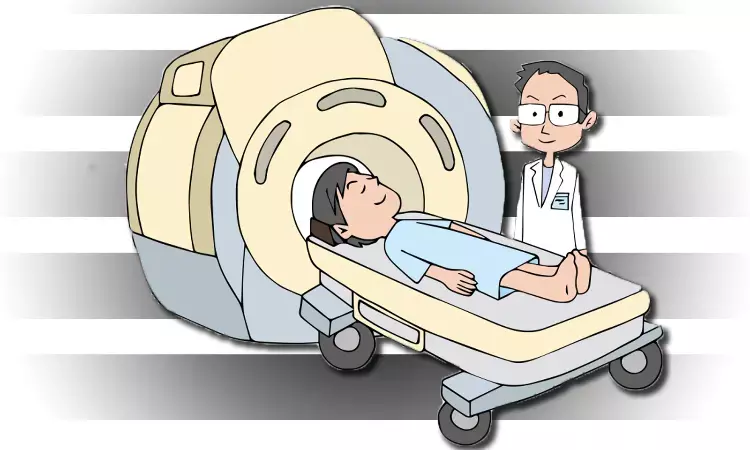- Home
- Medical news & Guidelines
- Anesthesiology
- Cardiology and CTVS
- Critical Care
- Dentistry
- Dermatology
- Diabetes and Endocrinology
- ENT
- Gastroenterology
- Medicine
- Nephrology
- Neurology
- Obstretics-Gynaecology
- Oncology
- Ophthalmology
- Orthopaedics
- Pediatrics-Neonatology
- Psychiatry
- Pulmonology
- Radiology
- Surgery
- Urology
- Laboratory Medicine
- Diet
- Nursing
- Paramedical
- Physiotherapy
- Health news
- Fact Check
- Bone Health Fact Check
- Brain Health Fact Check
- Cancer Related Fact Check
- Child Care Fact Check
- Dental and oral health fact check
- Diabetes and metabolic health fact check
- Diet and Nutrition Fact Check
- Eye and ENT Care Fact Check
- Fitness fact check
- Gut health fact check
- Heart health fact check
- Kidney health fact check
- Medical education fact check
- Men's health fact check
- Respiratory fact check
- Skin and hair care fact check
- Vaccine and Immunization fact check
- Women's health fact check
- AYUSH
- State News
- Andaman and Nicobar Islands
- Andhra Pradesh
- Arunachal Pradesh
- Assam
- Bihar
- Chandigarh
- Chattisgarh
- Dadra and Nagar Haveli
- Daman and Diu
- Delhi
- Goa
- Gujarat
- Haryana
- Himachal Pradesh
- Jammu & Kashmir
- Jharkhand
- Karnataka
- Kerala
- Ladakh
- Lakshadweep
- Madhya Pradesh
- Maharashtra
- Manipur
- Meghalaya
- Mizoram
- Nagaland
- Odisha
- Puducherry
- Punjab
- Rajasthan
- Sikkim
- Tamil Nadu
- Telangana
- Tripura
- Uttar Pradesh
- Uttrakhand
- West Bengal
- Medical Education
- Industry
Ferumoxytol-enhanced MRI good enough for detection of brain metastases: AJR

Portland, OR: Ferumoxytol-enhanced Magnetic resonance imaging is as effective as gadolinium-enhanced MRI for the detection of intracranial metastatic disease, suggests a recent study in the American Journal of Roentgenology. This could allow the use of ferumoxytol-enhanced Magnetic resonance imaging in improving workup and monitoring of brain metastases in case gadolinium-enhanced Magnetic resonance imaging is contraindicated.
Bronwyn E. Hamilton, Department of Radiology, Oregon Health & Science University, Portland, OR, and colleagues investigated whether ferumoxytol-enhanced MRI is as effective as standard-of-care gadolinium-enhanced MRI for the detection of intracranial metastatic disease.
The researchers retrospectively reviewed all patients who underwent imaging as part of two ongoing ferumoxytol-enhanced and gadolinium-enhanced MRI protocol studies to compare the number and size of enhancing metastatic lesions. Enhancing metastases on ferumoxytol-enhanced MR images and control on gadolinium-enhanced MR images were measured independently by two neuroradiologists. The size and number of metastases were compared on intraindividual basis. They recorded primary diagnoses. Differences in cubic root of volume between gadolinium-enhanced and ferumoxytol-enhanced MRI were compared using a linear mixed-effects model.
In this study, the researchers analyzed images from 19 patients with brain metastases (seven with lung cancer, three with melanoma, three with breast cancer, two with ovarian cancer, one with uterine cancer, one with carcinoid tumor, and one with renal cell carcinoma).
Key findings of the study include:
- Reviewer 1 identified 77 masses on ferumoxytol-enhanced MRI and 72 masses on gadolinium-enhanced MRI.
- Reviewer 2 identified 83 masses on ferumoxytol-enhanced MRI and 78 masses on gadolinium-enhanced MRI.
- For reviewer 1, ferumoxytol-enhanced MRI showed a mean tumor size measuring 1.1 mm larger in each plane compared with gadolinium-enhanced MRI.
- For reviewer 2, ferumoxytol-enhanced MRI showed a mean tumor size measuring 1.0 mm larger in each plane.
- No significant differences in number of metastases or tumor sizes were observed between contrast agents or reviewers.
The study, "Ferumoxytol-Enhanced MRI Is Not Inferior to Gadolinium-Enhanced MRI in Detecting Intracranial Metastatic Disease and Metastasis Size," is published in the American Journal of Roentgenology.
DOI: https://www.ajronline.org/doi/abs/10.2214/AJR.19.22187
Dr Kamal Kant Kohli-MBBS, DTCD- a chest specialist with more than 30 years of practice and a flair for writing clinical articles, Dr Kamal Kant Kohli joined Medical Dialogues as a Chief Editor of Medical News. Besides writing articles, as an editor, he proofreads and verifies all the medical content published on Medical Dialogues including those coming from journals, studies,medical conferences,guidelines etc. Email: drkohli@medicaldialogues.in. Contact no. 011-43720751


